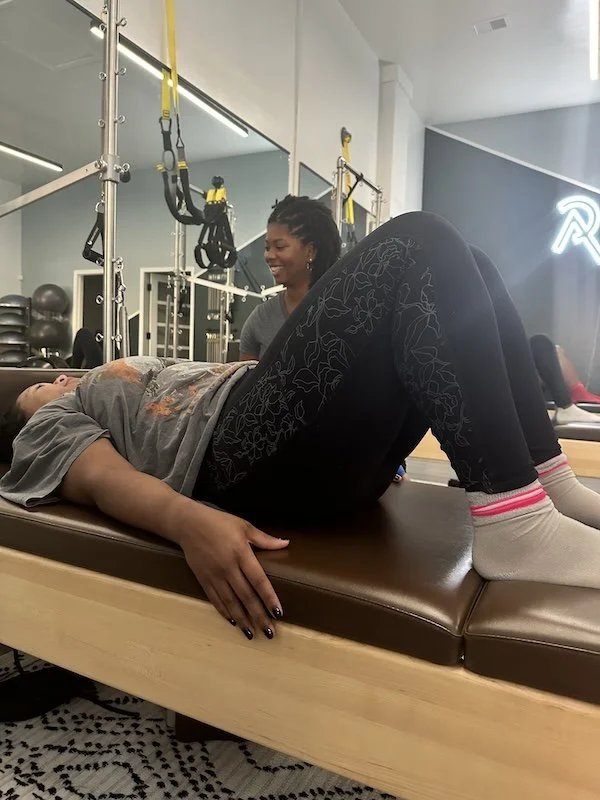Beyond the leak: A Q+A with Dr. Kelsey Stegall on empowering confidence through pelvic health
Dr. Kelsey Stegall is a board-certified women’s health clinical specialist with a Doctorate in Physical Therapy from the Medical University of South Carolina. Since 2020, she has dedicated herself to empowering individuals to overcome physical obstacles, including a common but treatable issue: urinary leakage during activities like coughing, jumping, or squatting.
Dr. Stegall emphasizes that while these symptoms are common, they are not normal and can be improved without the constant need for pads or liners. In May 2024, she founded Prosper and Thrive Pelvic Health and Wellness, LLC, a practice devoted to helping clients live fully without the worry of pelvic floor symptoms. Dr. Stegall’s mission is to support others in reclaiming confidence and comfort in their bodies, whether they’re bouncing on a trampoline, tackling a sneeze, or pursuing everyday adventures.
Keep reading as she explains what causes leakage and how it can be fixed.
Q. What are the most common causes of urinary leaking, and are there different types?
A. There are three types of urinary incontinence or urinary leakage:
Stress incontinence: Occurs when coughing, sneezing, laughing, moving and exercising
Urge incontinence: Occurs when you cannot make it to the restroom in time
Mixed incontinence: A combination of both
The most common cause of urinary leakage is weak pelvic floor muscles that occur during pregnancy, postpartum, or menopause. Pelvic floor muscles can even become weak after back or hip surgeries.
Q. How does pelvic floor strength affect bladder control, and what are some early signs that someone may need to focus on strengthening these muscles?
A. Good pelvic floor strength provides good bladder control. When you feel an urge to urinate, a strong pelvic floor can delay the urge giving you more time to make it to the restroom. A strong pelvic floor also contributes to complete bladder emptying.
Early signs that you may need to focus on strengthening your pelvic floor include not being able to stop the stream of pee when urinating, difficulty delaying the urge to urinate, or dribbling a little urine when sneezing or laughing.
Q. What are some common lifestyle habits that can exacerbate or improve leaking issues?
A. Power peeing (pushing to pee quickly), hoovering/squatting to pee over public toilets, drinking a lot of bladder irritants (ex. coffee, energy drinks, soda), and not enough water, and keeping your stomach sucked in can exacerbate leaking issues.
Sitting on the toilet and relaxing while urinating, consuming fewer bladder irritants, maintaining clear to pale yellow urine, sipping fluids instead of gulping, and breathing can improve leaking issues.
Q. Can exercises like Kegels help with leaking for everyone, or are there specific cases where they aren’t recommended?
A. Kegels are not for everyone. Kegels are for those with underactive or weak pelvic floors. Meaning that the pelvic floor muscles can relax completely, but not contract as much as they need to to prevent urinary leakage or fecal leakage. Kegels are not for those with overactive or tight pelvic floor muscles. Meaning that the pelvic floor muscles cannot relax completely.
Signs of overactive pelvic floor muscles include pain with vaginal penetration (inserting a tampon, GYN exams, penetrative intercourse), constipation, or UTI-like symptoms without having a UTI. In this case kegels will make symptoms worse.
Q. When should someone consider seeing a pelvic floor therapist, and what can they expect from their first session?
A. Someone should consider seeing a pelvic floor therapist if they experience urinary leakage, fecal incontinence, pelvic pain of any kind, or constipation not resolved with fluid and dietary changes.
Anyone that is pregnant, postpartum, going through perimenopause or had/considering a pelvic organ surgery should consider seeing a pelvic floor therapist.
At your first visit we will discuss your medical history and when your symptoms began. After taking time to hear and understanding your symptoms, limitations and goals, we will look at your movement and measure your muscle strength. After that, we will discuss the root cause of your symptoms and create a plan to alleviate them. Prosper and Thrive provides an individualized plan, unique to you and your body in order to restore function and meet your specific goals.
For more tips, you can follow Dr. Stegall on Instagram or schedule an appointment.


